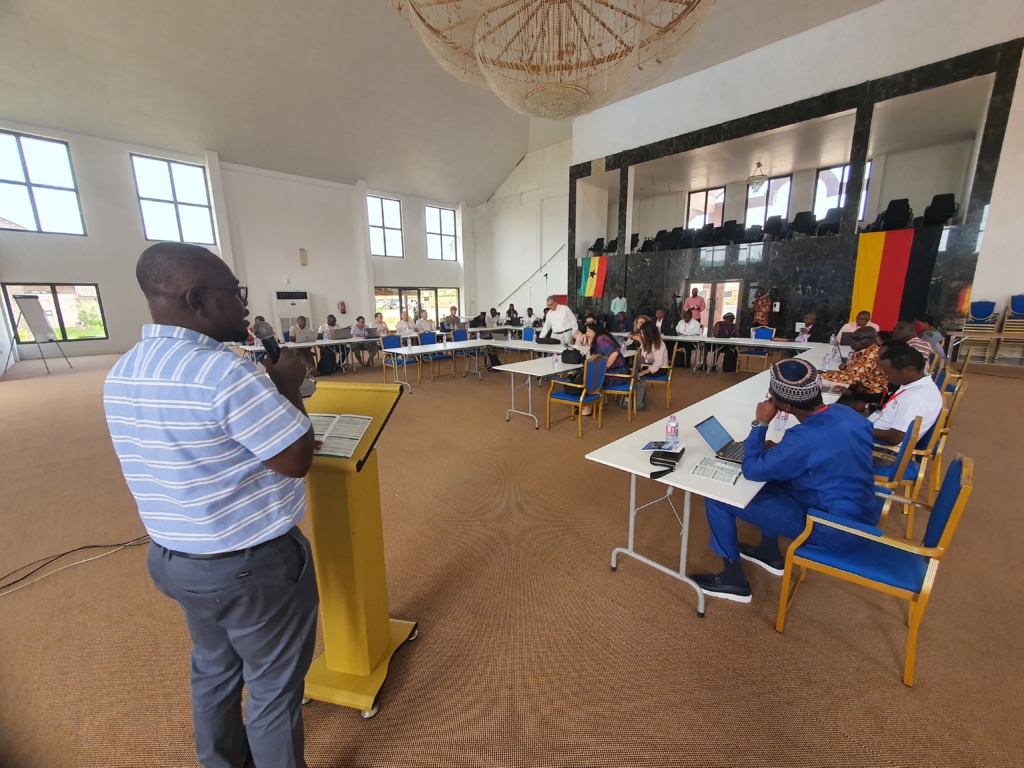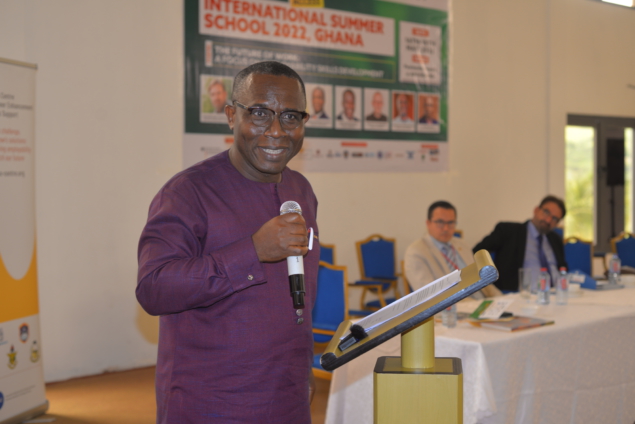Industry must be involved in curricula development and other training programmes in Ghana’s tertiary educational institutions.
According to CEO of Type Company Limited, Coby Asmah, the collaboration will help address the mismatch between industry and training which has rendered the youth unemployable.
Speaking at the ACCESS International Summer School at Akosombo, he urged industry to invest in skills development of the youth to meet the dynamic world of work.
“Industry must invest in skilling. Not only should they be a part of the curricula adjustment, but also to invest in training programs, postgraduate courses, internships, and course design,” he said.
“Industry must train and shape the professionals it needs and wants,” he added.
Mr. Asmah also wants the government to rally stakeholders to design programmes that can fulfill modern trends.
“And the government must drive public policy towards this needed shift in education.
“Through public institutions, the government has the power to align all the stakeholders under one common goal of addressing the skills gap and orient education towards the new opportunities provided by technology and globalization,” he said.
Soft skill training
Mr. Coby Asmah wants soft skill training to be introduced into the educational curriculum.
He is worried academia has long focused on teaching hard skills
“We need to transform the set of skills that are being taught. While industry is out there looking for soft skills, academia is busy focusing on technical and hard skills.
“As a matter of urgency, soft skill training must be introduced into curricula. The whole world of work is changing and evolving from the hard skills to the soft skills and technology is driving that, even though we we’re yet to understand the whole scope,” he explained.
Power of PPP
The Minister of Education, Dr. Yaw Osei Adutwum, pledged the government’s commitment towards public-private-partnerships to enhance the gains in the sector.
Deputy Director General, GITEC, Dr. Ahmed Jinapor spoke on his behalf.
“The private sector involvement spurs on healthy competition that leads to innovation and continuous quality enhancements.
“GITEC and the Ministry of Education by extension remain committed to this kind of private-public partnership model as demonstrated by the KNUST-ACCESS relationship and many others alike,” he said.
A case for ‘Professor of Practice’
The Dean of Quality Assurance and Planning Office at the Kwame Nkrumah University, Prof. Jerry John Kponyo is making a case for strong academia-industry collaboration in Ghana.
He is calling for a new policy to make industry players a mainstay in teaching.
He says they are important for skills and competency development.
His speech was delivered by Dr. Paul Kwadwo Addo, Head of institutional Planning, Quality Assurance and Planning Office, KNUST.
“How do we bring industry players to the classroom?
“Should we insist that Phd is the minimum academic qualification to teach? What about “Professor of Practice” who are being used in developed countries based on their rich experience and industry practice,” he puzzled.
About ACCESS international Summer School

The African Centre for Career Enhancement and Skills Support (ACCESS) is a German Academic Exchange Service (DAAD) funded project under the Exceed Initiative with funding from the Federal Ministry for Economic Cooperation and Development (BMZ).
The project is implemented by a consortium of seven universities made up of six African universities – Ghana, Benin, Nigeria, Rwanda, Tunisia, and Kenya – and coordinated by Leipzig University based in Germany.
It is under the theme, “The Future of Work: A Focus on Employability Skills Development”.
The theme is informed by the dynamics and complexities in the global employment markets especially for graduates of higher educational institutions in Africa.
An ACCESS board member, Daniel Eckert-Lindhammer, entreated the participants to be role models for the society.
“This is an exercise to exchange information. We have to be role models and spread and share our information,” he said.
Latest Stories
-
Court orders police to determine gender of accused
47 seconds -
Ghana’s gold production to rise marginally by 3% in 2025 – Deloitte
4 minutes -
A man’s suicide leads to clamour around India’s dowry law
4 minutes -
Asante Gold Corporation enters into $500m agreement with Fujairah Holdings LLC
9 minutes -
ECG Power Queens support Ho Female Prison
1 hour -
Don’t appoint a new EC Chair; allow Jean Mensa to work – Prof. Stephen Adei to Mahama
2 hours -
Bayer Leverkusen’s Jeremie Frimpong arrives in Ghana for visit
2 hours -
‘It will be disastrous if Mahama removes the Chief Justice’ – Prof. Stephen Adei
2 hours -
Jean Mensa must step down as EC Chair – APC and Movement for Change assert
2 hours -
Akufo-Addo calls on police to refine strategies to avoid prolonged electoral unrest
2 hours -
Only NPP looting brigade unhappy about ORAL – Ablakwa
2 hours -
CSIR-SARI introduces integrated soil fertility management technology to boost maize production
2 hours -
Ghana’s indigenous agribusiness faces challenges impacting economic growth – Dr. Azinu
2 hours -
41-year-old man arrested over illegal power connection
2 hours -
65-year-old man plans to walk over 250-km Kumasi-Accra journey for Mahama’s swearing-in
3 hours

